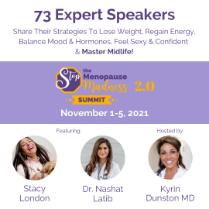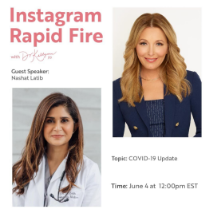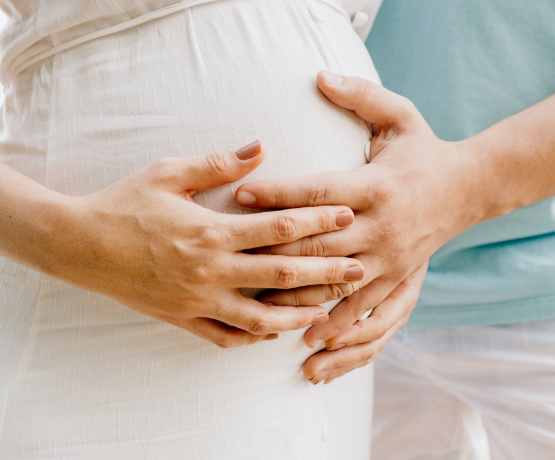Navigating the Path to Parenthood in Your Late 30s and Early 40s with Functional Medicine
The decision to start a family is a profound and life-altering choice for many individuals. However, as men and women enter their late 30s and early 40s, they may encounter age-related challenges when it comes to fertility. As functional medicine MDs, Dr. Christina and I offer a holistic approach to optimizing reproductive health during this critical phase of life. By understanding the impact of age on fertility and implementing lifestyle modifications, men and women can enhance their chances of conceiving and embark on a fulfilling journey towards parenthood.
The Impact of Age on Fertility for Men
Most people don’t think about how advancing age for men can affect fertility. So, I thought I would start here before describing how fertility affects women in the next section. While men continue to produce sperm throughout their lives, the quality and quantity of sperm may diminish over time. Older men may experience reduced sperm count, impaired sperm motility, and an increased risk of genetic mutations, potentially impacting fertility and the health of offspring.
Ways Age Can Affect Fertility in Men
- Sperm Quantity and Quality: As men age, there is a gradual decline in sperm quantity and quality. The volume of semen and sperm count may decrease, which can affect the overall fertility potential. Sperm motility (the ability of sperm to swim) and morphology (sperm shape) may also be compromised, leading to reduced sperm function and lower chances of successful fertilization.
- DNA Integrity and Genetic Mutations: With advancing age, there is an increased risk of genetic mutations in sperm. Older men are more likely to have sperm with damaged DNA, which can impact the success of conception and increase the risk of genetic abnormalities in offspring. Congenital defects, psychiatric disorders, and neurological conditions have been cited in research.
- Hormonal Changes: Testosterone levels may gradually decline as men age. Although the decline is generally subtle, it can affect sperm production and overall reproductive function. Hormonal imbalances can impact sperm development and maturation, leading to reduced fertility.
- Erectile Function and Sexual Health: Age-related changes in blood flow and hormone levels can contribute to erectile dysfunction (ED) and other sexual health issues. ED can affect the ability to achieve and maintain an erection, which can have implications for fertility. It’s important to note that not all older men experience ED, but the prevalence tends to increase with age.
- Increased Time to Conception: As men age, the time it takes to conceive can be prolonged. The chances of successful conception decrease, particularly in cases where the female partner is also of advanced maternal age. Older couples may require more time and assistance to achieve pregnancy compared to younger counterparts.
It’s important to note that while age can impact male fertility, men generally still have the ability to father children well into their later years. However, similar to women, the chances of conception and fertility potential do decline gradually as men age.
Functional medicine can play a role in optimizing male fertility by addressing lifestyle factors, hormonal imbalances, and overall health. By adopting a healthy lifestyle, managing stress, and seeking appropriate medical advice, men can take proactive steps to support their reproductive health and increase their chances of successful conception, even as they get older.
If you would like our support to walk through the process step by step, we are here for you! Watch our free, on-demand masterclass here and take the action step to apply to work with us. We’ve helped countless couples like you succeed in optimizing their fertility, even when they are starting a family a little later in life.
The Impact of Age on Fertility for Women
Age plays a significant role in fertility for both men and women. However, the “biological clock” does continue to ring true for women, despite current knowledge and research. The reason is because women are born with a finite number of eggs, and as they age, the quantity and quality of eggs decrease. By the time a woman reaches her late 30s and early 40s, her fertility potential starts to decline significantly. The chances of conceiving naturally decrease, while sadly, the risk of miscarriage and chromosomal abnormalities in offspring increases.
These physiological changes that occur in a woman’s reproductive system as they age affect fertility in the following ways:
- Ovarian Reserve Decline: As previously mentioned, women are born with a finite number of eggs, which gradually diminishes as they age. This process is known as ovarian reserve decline. By the time a woman reaches her late 30s and early 40s, her ovarian reserve is significantly reduced, resulting in a decrease in the quantity and quality of eggs available for fertilization. This decline in egg quality increases the chances of chromosomal abnormalities, such as Down syndrome, and reduces the likelihood of successful conception.
- Diminished Ovarian Function: As women age, their ovaries may experience reduced functionality. The ovaries produce hormones, primarily estrogen and progesterone, which regulate the menstrual cycle and support reproductive processes. With age, the ovarian function declines, leading to irregular menstrual cycles, anovulation (lack of ovulation), and diminished hormone production. These factors can hinder the chances of conceiving naturally.
- Increased Risk of Miscarriage: Advanced maternal age is associated with a higher risk of miscarriage. The quality of eggs declines as women age, leading to an increased likelihood of chromosomal abnormalities in embryos. The body’s natural defense mechanisms may result in the implantation failure or early termination of pregnancies with chromosomal abnormalities, leading to a higher incidence of miscarriage.
- Reduced Fertility Potential: The chances of successful conception decline as women age. The probability of getting pregnant each month, known as the monthly fecundity rate, decreases significantly after the age of 35. It becomes more challenging to achieve pregnancy within a reasonable timeframe, and the time taken to conceive may be prolonged.
- Increased Risk of Pregnancy Complications: Advanced maternal age is associated with a higher risk of pregnancy complications, including gestational diabetes, high blood pressure (preeclampsia), placenta previa, and preterm birth. These risks are influenced by both the decline in egg quality and the general physiological changes that occur as a woman ages.
Without playing to your fears, just remember that every woman’s reproductive journey is unique, and fertility can vary among individuals. While age is a significant factor, it does not dictate the ability to conceive. Some women in their late 30s and early 40s may still have a good chance of conceiving naturally, while others may face more challenges.
This article is meant to give you more understanding of your fertility journey to empower you to make informed decisions and seek appropriate support. As Functional Medicine practitioners who are also Board Certified Physicians, we can provide tailored strategies to optimize reproductive health and increase the chances of successful conception, even if you are considered “advanced” in age.
What Can We Do? Functional Medicine Approach to Enhancing Fertility
- Optimize Nutrition: A healthy and balanced diet is essential for reproductive health. Our Fertility Kickstart Program teaches you the foundations of how to consume nutrient-rich foods, including fruits, vegetables, whole grains, lean proteins, and healthy fats. Adequate intake of antioxidants, such as vitamins C and E, may support egg and sperm quality.
- Manage Stress: High stress levels can negatively impact fertility. Our program infuses the mind-body work necessary to prepare for conception with stress management techniques and engaging activities that promote relaxation and emotional well-being.
- Maintain a Healthy Weight: Both underweight and overweight conditions can affect fertility. Achieving and maintaining a healthy weight can optimize hormone balance and enhance reproductive function. We believe this can be done through dedicated mindful eating and appropriate exercise.
- Exercise Moderately: Regular physical activity promotes overall well-being and can support fertility. However, it’s important to know that excessive exercise or intense training can disrupt hormonal balance. Aim for moderate exercise routines and seek a professional in this area for more tailored advice.
- Minimize Toxin Exposure: Environmental toxins found in everyday products can disrupt hormone balance and fertility. Minimize exposure to chemicals, pesticides, and endocrine-disrupting substances found in plastics, cleaning products, and personal care items.
- Support Hormonal Balance: As Functional Medicine practitioners and MDs, we can help assess any hormonal imbalances and advise personalized interventions.
- Consider Assisted Reproductive Techniques: After all efforts are made and you cannot conceive, we don’t tell couples to simply give up. As doctors ourselves with specialization in Functional Medicine, we work alongside other fertility specialists to explore assisted reproductive techniques, such as in vitro fertilization (IVF) or intracytoplasmic sperm injection (ICSI). However, we are confident that our program works, as it has seen an 80% success rate!
If you are looking for functional medicine support in your journey to pregnancy Click here to watch our on-demand webinar, where we reveal the 4R Fertility FormulaTM we use to work with our clients. If what we share sounds good, we invite you to apply for a spot in our high-touch, individualized group program that has over an 80% success rate in helping couples conceive naturally.
Conclusion
While age can present certain challenges to fertility, individuals in their late 30s and early 40s can take proactive steps to optimize their reproductive health. Our Functional Medicine program offers a comprehensive and personalized approach to support fertility by addressing underlying imbalances and promoting overall well-being. By adopting a lifestyle that is balanced, managing stress, and seeking expert guidance, men and women can enhance their chances of conceiving and embrace the rewarding journey towards parenthood. Remember, it’s never too late to pursue your dreams of starting a family with the necessary support!








